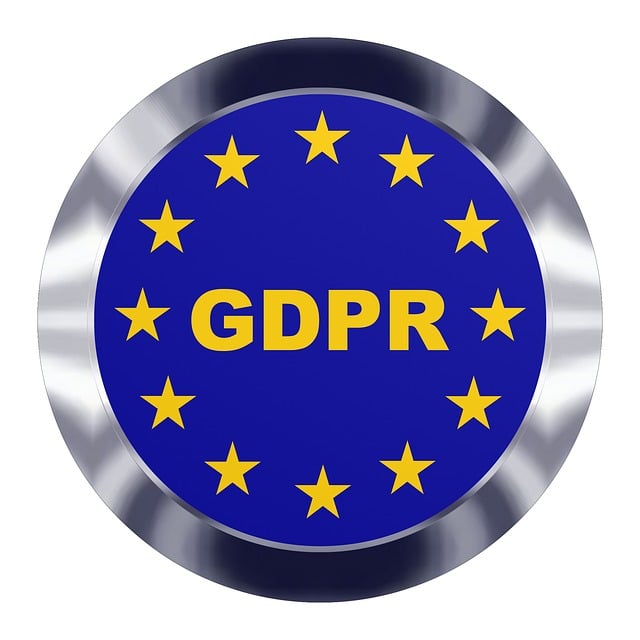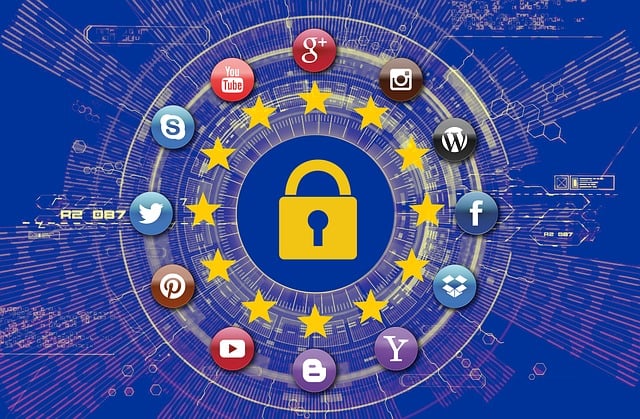For Certified Public Accountants (CPAs), navigating global data privacy regulations like the GDPR is essential due to increasing digital transformation. Compliance involves implementing robust IT systems with access controls and monitoring mechanisms to protect sensitive financial information, avoiding stringent penalties, and fostering client trust. Key steps include understanding data protection laws, regular IT system updates, conducting IT audits, seeking legal support, integrating secure systems, using specialized CPA file security tools, automating tasks, updating policies, training staff on best practices, and continuously monitoring operations. An ongoing, proactive approach ensures regulatory adherence, builds trust, and demonstrates commitment to integrity in accounting practices.
In the digital age, financial IT systems are subject to stringent regulatory compliance standards, with General Data Protection Regulation (GDPR) at the forefront. For Certified Public Accountants (CPAs), understanding and adhering to these requirements is paramount to protect sensitive client data and maintain public trust. This article guides CPAs through navigating GDPR, identifying necessary compliance measures in financial IT infrastructure, implementing technical solutions, training staff, and establishing continuous monitoring practices to ensure lasting adherence to GDPR standards.
- Understanding GDPR and Its Relevance to CPAs
- Identifying Regulatory Compliance Requirements for Financial IT Systems
- Data Protection and Privacy under GDPR for Accounting Practices
- Implementing Technical Solutions for Compliance
- Training and Policy Updates for Staff
- Continuous Monitoring and Auditing for Long-Term Compliance
Understanding GDPR and Its Relevance to CPAs

For Certified Public Accountants (CPAs), understanding and adhering to global data privacy regulations like the General Data Protection Regulation (GDPR) is increasingly critical. As digital transformation continues to reshape the accounting landscape, CPAs handle vast amounts of sensitive financial information, making GDPR compliance a non-negotiable requirement. This regulation sets out stringent rules on how personally identifiable data can be collected, processed, and stored, with significant penalties for non-compliance.
For CPAs, implementing robust access controls in IT systems for financial reporting is essential to safeguard client data. Compliance monitoring mechanisms that track data usage and user activities are also vital tools in ensuring GDPR adherence. By embracing these practices, CPAs can not only meet their regulatory obligations but also enhance the security and integrity of financial information they manage, fostering trust among clients and maintaining the highest standards of professionalism.
Identifying Regulatory Compliance Requirements for Financial IT Systems

Identifying Regulatory Compliance Requirements for Financial IT Systems is a critical step for CPAs navigating the complex landscape of data protection and privacy laws. In today’s digital era, financial institutions, including accounting firms, must adhere to stringent regulations like the GDPR (General Data Protection Regulation) for CPAs. This European law sets out clear rules on how personal data must be protected, giving individuals more control over their information. For accountants, this means ensuring that IT systems managing client data are secure and compliant with GDPR standards.
Effective compliance involves thorough understanding of relevant regulations and regular updates to reflect changing requirements. IT audits for accountants play a pivotal role in evaluating existing systems and processes. Additionally, seeking IT legal support from experts who specialize in assisting CPAs can provide valuable insights into implementing the necessary controls and utilizing accounting compliance IT tools to streamline the process while maintaining adherence to these stringent standards.
Data Protection and Privacy under GDPR for Accounting Practices

For Accounting Practices, ensuring Data Protection and Privacy is a key aspect of adhering to GDPR requirements. As CPAs handle sensitive financial data, implementing robust IT systems that safeguard personal information is paramount. This includes adopting accounting compliance IT tools that encrypt data at rest and in transit, ensuring only authorized personnel can access critical files.
Beyond this, regular security audits and staff training on data privacy best practices are essential. With strict penalties for non-compliance, CPAs must integrate CPA file security as a cornerstone of their financial reporting IT infrastructure to maintain trust and integrity within their organizations and beyond.
Implementing Technical Solutions for Compliance

Implementing Technical Solutions for Compliance is a vital step for CPAs aiming to meet regulatory requirements, particularly under the GDPR framework. The first consideration is integrating robust IT for financial reporting that ensures data accuracy and security. This includes setting up secure systems for data storage, processing, and transmission, which are essential components of maintaining detailed and verifiable audit trails IT.
Using specialized accounting compliance IT tools can streamline this process significantly. These tools are designed to automate various tasks related to data management, risk assessment, and reporting, ensuring that all financial records adhere to regulatory standards. By leveraging these technological advancements, CPAs can efficiently navigate the complex landscape of regulatory compliance, saving time and reducing the potential for human error.
Training and Policy Updates for Staff

To ensure financial IT systems meet regulatory compliance requirements, especially under the GDPR for CPAs, regular training and policy updates are essential. All staff members handling sensitive financial data must be educated on the latest regulations, their implications, and best practices for data protection and privacy. This includes comprehending data retention policies, which vary across jurisdictions and industries, with a focus on adhering to the required data retention periods for CPA firms.
Regular policy updates are crucial as regulatory landscapes evolve. Staff training should cover not only new laws but also any changes in existing guidelines that impact data handling procedures. Incorporating these updates into staff manuals and ensuring ongoing awareness will foster a culture of compliance within the firm, streamlining operations and mitigating potential legal issues for CPAs.
Continuous Monitoring and Auditing for Long-Term Compliance

Maintaining regulatory compliance in financial IT systems is an ongoing process, especially with dynamic regulations like GDPR for CPAs. Continuous monitoring and auditing are essential components to ensure long-term adherence. By implementing robust IT for financial reporting, professionals can actively track data flow, transaction records, and access controls accounting for accountability at all times. Regular audits help identify potential gaps or non-compliance issues early on, allowing quick corrections without significant disruptions.
This proactive approach leverages audit trails IT to provide a detailed record of system activities, user access, and changes made to financial data. Such transparency is vital in building trust with regulators and stakeholders while demonstrating a commitment to maintaining the highest standards of integrity in accounting practices.
